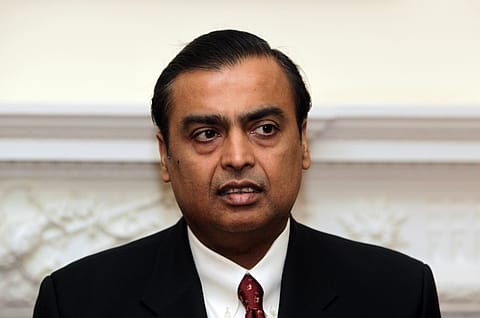Concerns over 5G loom large over IMC
The India Mobile Congress saw the focus shift to the debate on 5G technology and the inherent resilience of Indian telecom industry to withstand the onslaught from the pandemic.

At the fourth edition of the India Mobile Congress (IMC), Covid-19 and the resilience that the telecom industry had shown seemed to be the dominant thought among many speakers. And, of course, 5G.
“The outbreak of Covid-19 posed life-threatening challenges, but our high-speed 4G connectivity infrastructure has proved to be India's digital lifeline. Throughout 2020, India worked online, studied online, shopped online, received healthcare online, socialised online, played online—simply put, India thrived online,” Reliance Industries chairman Mukesh Ambani said during his virtual address on Tuesday. “Despite the lockdown, the entire industry consisting of thousands of engineers and employees worked round the clock to provide critical support 24x7 to all sections of the society and business.”
Ambani said that Reliance Jio “will pioneer the 5G revolution in India in the second half of 2021”, adding that “policy steps” were needed to accelerate the early rollout of 5G, "and to make it affordable and available everywhere". He highlighted that "300 million mobile subscribers in India are still trapped in the 2G era" and urgent policy steps were needed to ensure that these "underprivileged people have an affordable smartphone". It may be recalled that at Reliance's annual general meeting in July, Reliance Jio had said that it would partner with Google for an Android-based operating system for affordable smartphones.
Earlier, delivering his virtual inaugural address at the three-day event, Prime Minister Narendra Modi said that thanks to mobile technology, the government was able to provide benefits worth billions of dollars to millions of Indians, and enabled the government to help the poor and vulnerable quickly during the pandemic. The PM, urging for a timely rollout of 5G, also said that the country was emerging as a preferred destination for mobile manufacturing.
5G and its challenges
A survey released at the virtual event pointed out that high-speed data requirements propelled by the pandemic are expected to drive 5G efforts in India. While 4G/LTE is expected to remain the dominant mobile network technology by 2025, in the context of mobile subscriptions, 5G mobile subscriptions are expected to increase to 18% by 2025. This is likely to be driven by an expected increase of nearly 410 million smartphone users in India by 2025, said the report titled TMT industry CEO Outlook, which was released by KPMG in India, in association with IMC and Cellular Operators Association of India (COAI). TMT refers to the technology, media, and telecom sector.
The report further argued that industrial manufacturing, retail, and automotive were the top three industries expected to have the highest potential in terms of 5G technology adoption and number of use-cases.
Recommended Stories
The report also highlighted some concerns that might impede a seamless adoption of 5G technology. One of the core concerns highlighted is that, although telecom players are inking strategic deals with network infrastructure providers to bolster their ability to deliver 5G technology, the high price of 5G spectrum, significant infrastructure investment requirements, and regulatory policy concerns could hinder its commercial launch.
While India may not be among the front-runners globally for 5G adoption considering the current Covid-19 situation, elongated 4G monetisation period and a hyper price sensitive market, the country can potentially stand to benefit from a delayed adoption through the availability of more mature business use-cases, numerous prototypes, and a collaborative environment to ensure profitable and sustainable 5G deployment on a large scale, the report said.
The report, which surveyed 300 CEOs in the sector from India—from Fortune 500 companies to startups—said that at least 61% of the them reported an earnings outlook of more than 10% over the next three years, while 52% seemed "very confident" about the growth prospects for the sector.
Satya Easwaran, partner and national sector leader, Telecom, Media and Technology, KPMG in India, said, "Covid-19 has brought about a fundamental shift in the way businesses operate. As a result, the TMT sector is experiencing a new wave of innovation and invention. Convergence in the role of telecom and technology companies, increase in strategic partnerships, as well as government-led initiatives, are expected to assist the industry in catering to the changing needs of the customers.”
(INR CR)
Ambani seemed to sum up the upbeat mood in his address. "India can—and India will—prove cynics wrong by becoming a $5-trillion economy," he said.